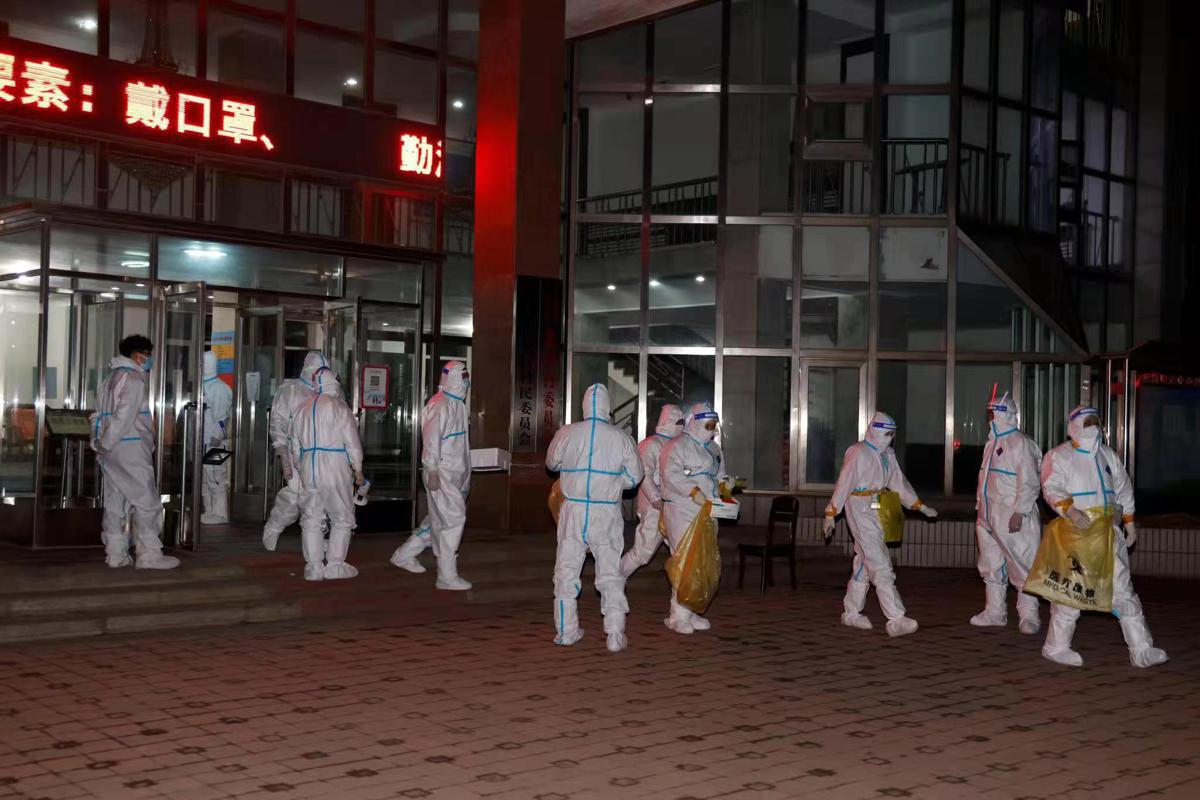Cities take on Omicron with ramped-up testing


Novel approaches being taken to limit spread of highly transmissible variant
An increasing number of Chinese cities have been performing regular nucleic acid testing among their residents to reinforce the defense against the spread of the Omicron variant, with novel approaches being taken including mixing up the testing variables such as frequency, area and even gender.
Starting on Tuesday, Dalian, Liaoning province, is requiring male residents to be tested on Tuesdays and female residents on Thursdays. Those who cannot take tests on weekdays can do them on Saturdays.
"In principle, all residents in the city should take nucleic acid tests once a week," Qu Gang, deputy director of Dalian's health commission, told a Monday news conference.
"The Omicron variant of the coronavirus spreads faster with a doubling infection rate in two to three days," said Qu.
"Considering that the transmission risks at the community level are largely related to family gatherings, it is better to identify potential risks early if the detection of members from the same family is being distributed at different times."
In other words, a wife and husband can take turns testing to pinpoint potential risks in a timely manner while reducing the strain on testing resources.
The port city has set up more than 2,300 fixed nucleic acid testing sites and some mobile sites.
Residents can reach a site within a 15-minute walk and take a test in less than 20 minutes.
If an individual fails to take a regular test as required and subsequently infects others, he or she must bear legal responsibility, said Qu.
The new measure, which aims to detect potential risks in a timely manner and eliminate the virus dynamically to minimize its spread, has won support from local residents.
"When I heard the news, I thought it was funny. But later, I found it a very good idea," said Song Jiahua, 37.
"Due to the fast spread of Omicron, the result of one person is most probably the same as his or her family members. It is equivalent to monitoring the residents twice a week at the cost of just once," he explained.
On Tuesday, Song took the test after work at a testing site near his home. Some of his colleagues took tests during their lunch breaks.
"I think it is more convenient now. We saved money and time-though the residents do not need to pay for it by themselves," said Song.
Like Dalian, Fuzhou of Fujian province also encourages residents to take nucleic acid tests once a week.
In Shanxi province and Hefei of Anhui province, the interval is five days. In Jiangxi province and Suzhou of Jiangsu province, it is three days.
Since March, Shenzhen, Guangdong province, as one of the early cities performing regular nucleic acid tests, has required residents to show negative results of nucleic acid tests within 48 hours when entering residential communities and various public places.
From April 5, it made an adjustment with negative results from within 72 hours needed to go to public places and to take public transportation.
Hangzhou, Zhejiang province, has required all residents to take a test every 48 hours since April 28.
- Chinese revel in culture, tourism feast during holiday
- World leaders extend congratulations on PRC's 75th founding anniversary
- Ethnic vloggers popularize highs and lows of rural life
- 2 killed as typhoon lands in Taiwan
- China-built supply chains to benefit all
- Condolences given after Taiwan hospital fire





































